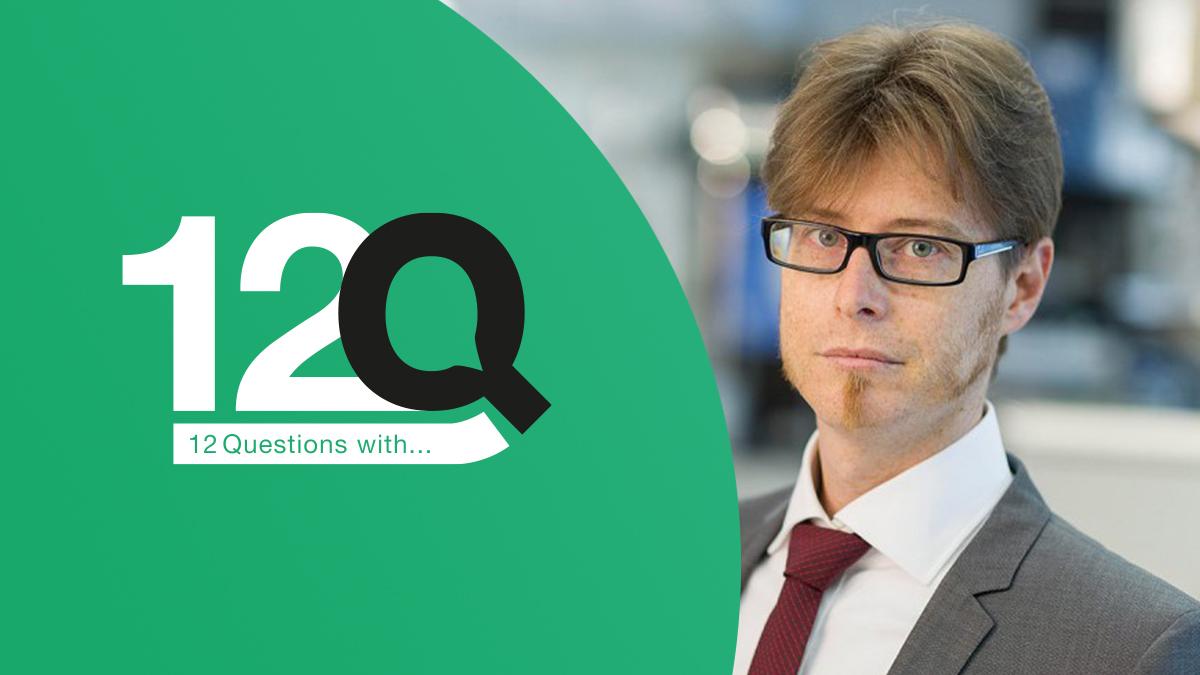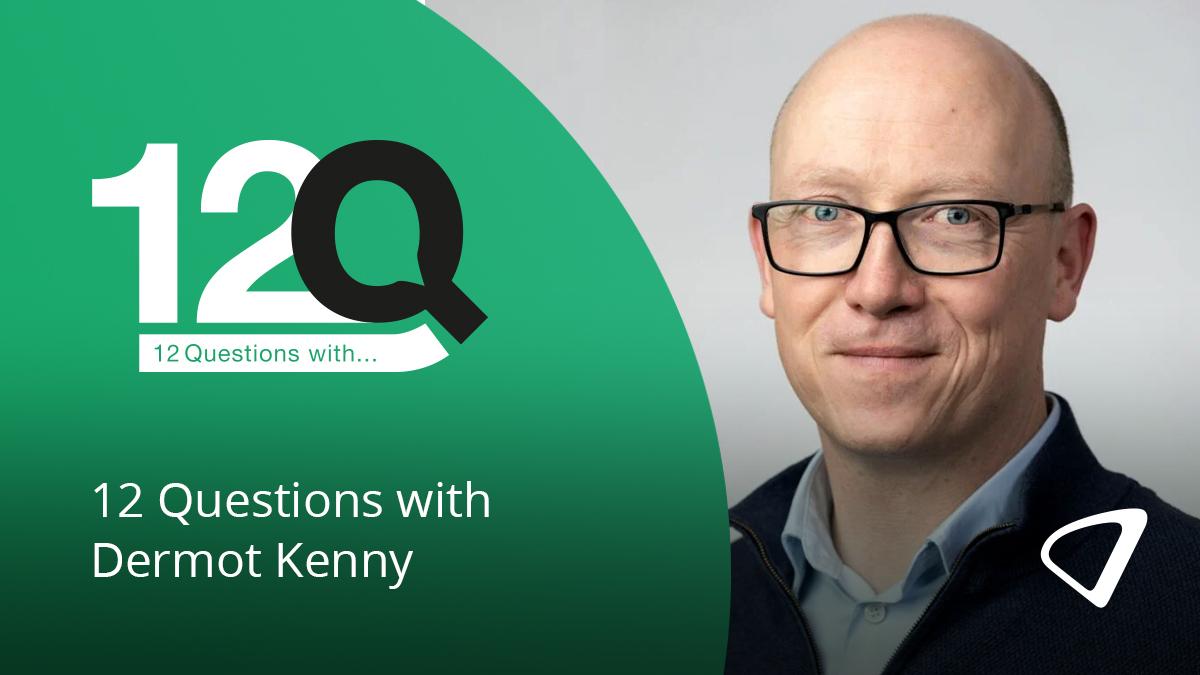12 Questions with Jorge Reis-Filho

As Vice President of Cancer Biomarker Development at AstraZeneca, Jorge Reis-Filho seeks to develop and validate the next generation of mechanistically informed and clinically deployable biomarkers and to facilitate access to optimal treatments for cancer patients worldwide.
What are the main responsibilities of your current role? I oversee development of the next generation of cancer biomarkers. My primary focus is creating mechanistically informed and clinically deployable biomarkers to help deliver the right drug to the right patient at the right time in their therapeutic journey. My team and I are responsible for building the technologies, approaches, systems, and assays that can unlock the full potential of precision and personalised medicine.
What was your background prior to this role and how did it prepare you for the work you do now? My career has been rather unorthodox. Starting in academia in 2002 as a pathologist, I pursued a PhD in genomics and functional genomics, leading to roles in technology development and experimental pathology. This journey took me from the University of Porto to the Institute of Cancer Research in London and then to Memorial Sloan Kettering in New York. Each step broadened my understanding of biomarker discovery and assay development, culminating in their application in clinical trials.
In 2017, my career diversified with my appointment to the Scientific Advisory Board of Paige.AI, where I deepened my knowledge of AI in pathology and its transformative potential in precision medicine. Then, in 2018, I started working as a consultant for Goldman Sachs in biotech and health tech. This position offered invaluable insights into private equity and the essentials for early-stage healthcare companies’ success.
Collectively, these experiences have given me a comprehensive understanding of the challenges and opportunities in bringing new technologies from conception to deployment, particularly in the context of my current role at AstraZeneca.
What is your personal mission statement? What values keep you centred in your work? My mission is to transform oncology care and consequently pathology, using innovative technologies and seeking benefits for patients. I always focus on science first, but find it equally important to remain entrepreneurial, taking calculated and healthy risks. This is relevant in understanding technologies that can shift paradigms, while being realistically deployable in a reasonable timeframe. This is not something that can be achieved alone, so I value creating synergy through collaboration. Nobody can comprehend all of the intricate complexities of translational and precision medicine alone.
What do you see as the biggest challenges facing the industry right now? A key challenge in our industry is navigating the complex landscape of therapeutic agents. The critical question is how to prioritise, combine, or sequence these agents to maximise patient benefits. Traditionally, we've focused on a one-biomarker-per-drug approach, but now, at AstraZeneca, we're exploring how to optimise combination therapies, leveraging our diverse portfolio to attack cancer effectively from multiple angles.
Simultaneously, integrating novel technologies in therapeutic development is essential. We're committed to developing a systematic framework to identify and incorporate the right technologies at optimal stages of development.
Above all, maintaining patient centricity is paramount. We focus on balancing patient risks with maximum benefits, particularly in clinical trials. This patient-first approach underpins all our efforts in advancing cancer treatment.
How has digital technology changed your work or workplace culture? The impact could not be more profound. Within AstraZeneca, digital technologies, AI, and integrative models have become a centrepiece in our development process.
Digital technology plays a key role in developing the next generation of biomarkers for many of our therapeutic agents. There are also unprecedented opportunities to use AI-based methods to eventually democratise access to biomarkers. Many of the assays needed today rely on expensive equipment for genomic proteomic analysis, limiting access to them. With the strategic investment AstraZeneca made in computational pathology, we will eventually have access to the biomarkers stemming from the analysis of digital images derived from histology and immunohistochemistry. This has the potential to become a real game-changer.
What are the most important professional skills in your work and how do you hone them? A few of the skills are more character traits. We need to have integrity and compassion, and a drive to do for others what we hope they would do for us. Finding community where we’re all mission-orientated and understand that we can thrive with a diversity of opinions, expertise, background, and life experiences. These are crucial values for leading a complex and diverse group of scientists, businesspeople, and experts together to drive strategy. Scientific rigor is also essential. What impressed me most when I came to AstraZeneca was the level of technical scientific knowledge our team had, which far surpassed what I was used to.
What excites you most about current industry trends? We are at an inflection point in oncology and pathology, with the introduction of novel digital technologies. AI applied to pathology is making an exciting impact, but I think generative AI in foundational models will change the way we integrate data to understand patient trajectories.
With new technologies that can integrate multidimensional data, we'll be able to start predicting patient trajectories more accurately and, if we discover a deterministic pattern, we'll be able to start selecting combination therapies much more effectively.
I believe there will be a confluence point where we will make a quantum leap in our capabilities with these new technologies. We'll look back at the way we practiced oncology in the 2000s and say, "Oh wow. We have come such a long way."
If you could change one thing about the pharma industry, what would it be? It would be to enhance the visibility and transparency of the remarkable scientific and technical advancements we are achieving in pharma. From academia to my current role in developing cancer biomarkers, I've observed a significant gap in how the academic and wider communities perceive the ground-breaking work being done in pharma. There’s an incredible wealth of innovation and progress happening behind the scenes that, if more widely recognised and understood, could foster greater collaboration, trust, and support from the public and academic sectors. This increased visibility would also encourage a more integrated approach to solving complex medical challenges.
What do you think pharma will look like in 15 years? I think there will be a few inevitable trends. First, the impact of technology will be massive. We'll see a much more holistic way to look at individual patients, integrating data from multiple sources, assisted by AI, to tailor personalised treatment based on predictions with a much greater level of accuracy.
Challenges will arise from regulatory, accountability, and ethical standpoints. But I imagine a far more interwoven space with clear firewalls at multiple stages to ensure benefit and equitable opportunity for all patients. Collaboration between companies and between pharmaceutical companies and healthcare systems, and how we work together seamlessly, will be absolutely essential.
What is your all-time favourite book? It's The Plague by Albert Camus, an existentialist French-Algerian philosopher. It talks about the meaning of our existence, but in the context of an epidemic. It highlights what we can learn from extreme experiences and how much we have to understand about compassion, the challenges of being in a system where everything is being disrupted, and the meaning of our existence in that context. It's a fascinating book. I read it for the first time when I was 13 and go back to re-read it.
What are your hobbies? What do you do in your free time? I collect Rock ‘n Roll memorabilia. I was a big Sonic Youth fan in the nineties and managed to get some of their guitars. I'm really passionate about music and my son is musically inclined, so I'm now his roadie. I play bass, while he plays the drums. That's my biggest hobby now.
What sports do you follow and who do you root for? I’m a big football fan. My father played professional football in Brazil; hence, it was inevitable that I would like football, although I was rubbish at it. But, in England, I support Arsenal in the Premier League.
Connect with Jorge Reis-Filho on LinkedIn.











